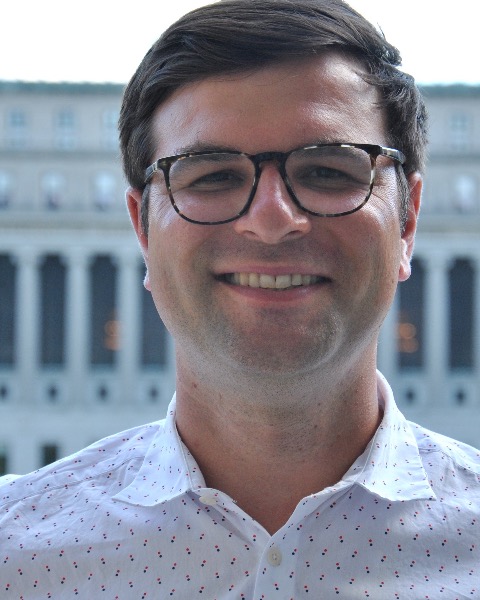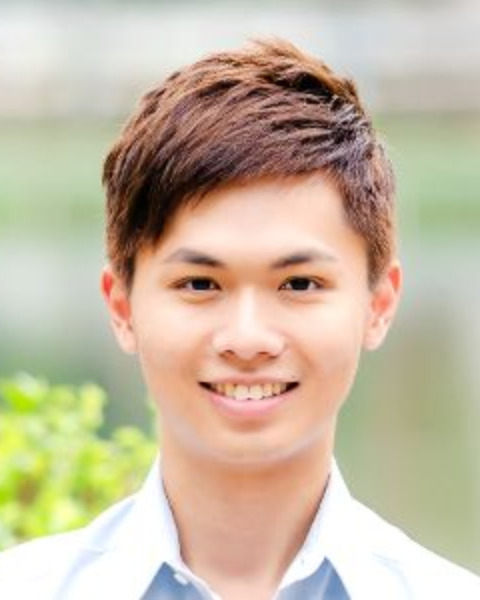Behavioral and Social Sciences
Intergenerational Contact and the Benefits for Older Adults
-
XZ
Xin Zhang, Ph.D (he/him/his)
Associate Professor
Psychology
Peking University
Beijing, Beijing, China (People's Republic) -

Wanyu Xi, PhD (she/her/hers)
Assistant Professor
Department of Aging Services and Management
Nanjing University of Chinese Medicine
Nanjing, Jiangsu, China (People's Republic) -

David Weiss, PhD (he/him/his)
Senior Lecturer
Psychology
Martin-Luther-University of Halle-Wittenberg
Halle, Sachsen-Anhalt, Germany -

Wanyu Xi, PhD (she/her/hers)
Assistant Professor
Department of Aging Services and Management
Nanjing University of Chinese Medicine
Nanjing, Jiangsu, China (People's Republic) -

Dwight Tse, PhD, CPsychol, FHEA
Lecturer (Assistant Professor)
School of Psychological Sciences and Health
University of Strathclyde
Glasgow, Scotland, United Kingdom -

Yuanqing Chang, PhD (she/her/hers)
Postdoc
School of Psychological and Cognitive Sciences
Department of Sociology, Peking University
Beijing, Beijing, China (People's Republic) -

Liat Ayalon, PhD. (she/her/hers)
Professor
Louis and Gabi Weisfeld
Bar Ilan University
Ramat Gan, HaMerkaz, Israel
Chair(s)
Co-Chair(s)
Discussant(s)
Individual Symposium Abstract First Author(s)
Intergenerational contact can be in a variety of forms, from day-to-day interaction between family members, such as filial piety expressed by the younger generation, to artificial contact in an on-line game context. No matter what form of intergenerational contact, it is believed that such contact should be beneficial for older adults for many reasons. For example, it can help to reduce feelings of loneliness, stress and provide a greater sense of purpose. It can also help to foster a greater appreciation for differences between generations and create stronger social connections with those of different ages. It can also boost mental health, physical health, and even reduce the risk of depression.
In a group of 5 individual presentations, the authors showcased that intergenerational contact could promote life satisfaction in a 5-year-interval (Ayalon & Dikla), reduce ageist attitudes toward older adults in an on-line game context (Xi, Chang, Zhang, & Ayalon), foster positive self-perception of aging (Chang & Zhang; and Tse), as well as enhance health information-seeking behaviors (Zhao, Song, & Song). These results indicated that even from different cultural background (e.g., Chinese or Americans), a positive intergenerational contact, such as providing social support to aged parents, collaborating with partners from different age groups, and even offer kindness actions toward people of a different age group could indeed be beneficial.
These studies provided theoretical insights for the intergenerational contact literature, and highlighted important practical implications for potential interventions to facilitate successful aging for older adults.
Learning Objectives:
- After attending this session, participants will be able to know different forms of intergenerational contact, and how these contacts could influence younger adults' ageist attitudes toward older adults, older adults' self-perception of aging as well as health information seeking behaviors.
- After attending this session, participants will be able to know more about a specific form of intergenerational contact, i.e., filial piety in Chinese culture. They will know more about how filial piety is perceived by younger and older adults in China, and how such perception could impact ageism.
- After attending this session, participants will be able to have more insights on interventions aiming at improve older adults' self-perception of aging and well-being through a variety of intergenerational contact, such as on-line game or acts of kindness toward others.
Presentations:
-
12:30 PM – 2:00 PM ETSurrogate Health Information-Seeking for Older Adults: Intergenerational Support in Life Transition Contexts
-
12:30 PM – 2:00 PM ETThe Effect of Online In-Game Intergenerational Contact on Ageism Toward the Opposite Generation
Individual Symposium Abstract First Author: Wanyu Xi, PhD (she/her/hers) – Nanjing University of Chinese Medicine
-
12:30 PM – 2:00 PM ETKindness Intervention and Self-Perception of Aging: An Intergenerational Perspective
Individual Symposium Abstract First Author: Dwight Tse, PhD, CPsychol, FHEA – University of Strathclyde
-
12:30 PM – 2:00 PM ETMore Filial Piety From Adult Children, More Positive Self-Perception of Aging in Older Parents?
Individual Symposium Abstract First Author: Yuanqing Chang, PhD (she/her/hers) – Department of Sociology, Peking University
-
12:30 PM – 2:00 PM ETA Gendered Perspective on Intergenerational Relationships in the Second Half of Life
Individual Symposium Abstract First Author: Liat Ayalon, PhD. (she/her/hers) – Bar Ilan University
